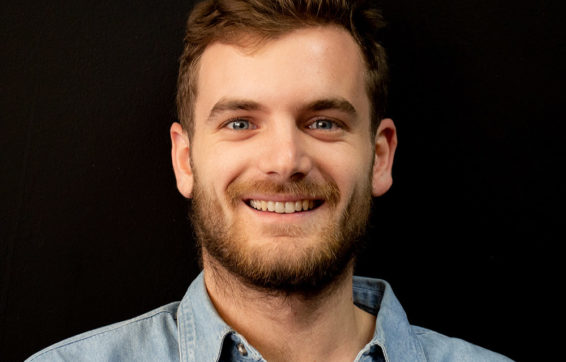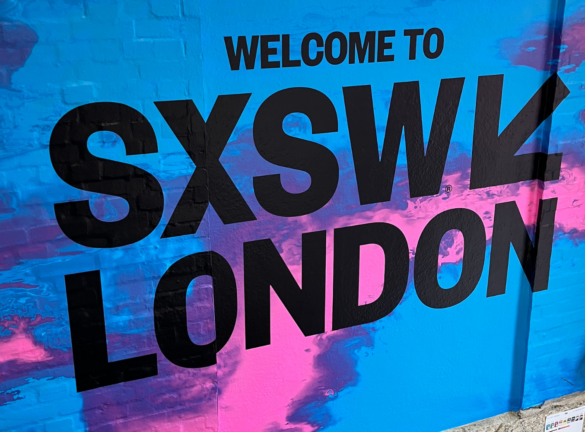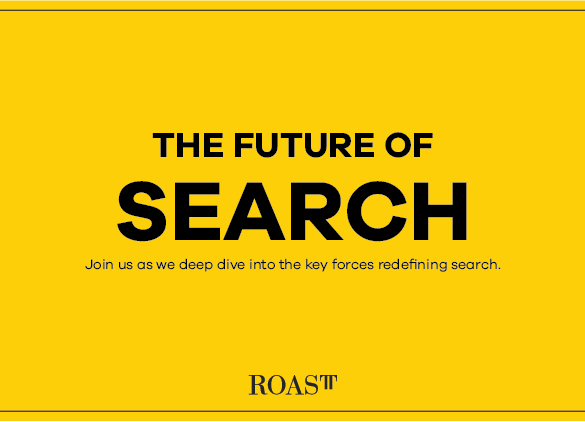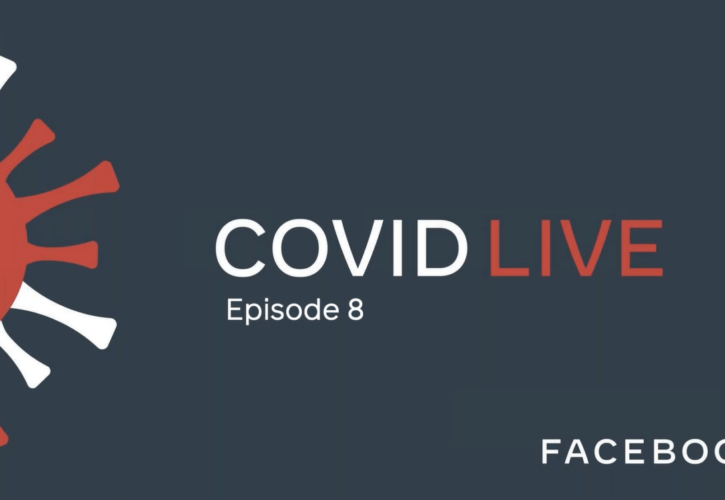
Insights from Facebook EMEA’s eighth COVID Live Webinar
Facebook EMEA’s seventh COVID LIVE Webinar was delivered on Wednesday 27th April. Below are the key insights from the session:
1) Is the second wave psychological?
2.6 billion people across the planet have been in lockdown, and despite the number of daily cases declining in the UK, many are still anxious.

Financial worries, fears for physical health of ourselves and loved ones, enforced isolation and stress have led to psychological issues for many. With 28% of the UK population saying that COVID is causing them to be depressed, and 25% saying it is causing them to over eat.

However, certain groups are being hit harder than others. Single people and healthcare workers are being the hardest hit psychologically, especially if they are female. For example, women are scoring 13% higher than men for anxiety. In fact the only data-point where men seem to be struggling more than women in the UK is for increased alcohol usage.

These psychological effects are impacting ‘normal behaviour’ and will have long-lasting implications for the economy, with 56% of UK females trying to limit the time they spend in store and 50% cutting back on non-essential spending.

Why are women bearing more of the psychological burden than men?
Childcare is likely to be a major factor. Studies have shown that 27% of mothers are cutting work hours to look after their children and that mothers get only one uninterrupted hour of work per day for every three that fathers get. Single parents are having a particularly difficult time, with 52% saying they have become very stressed or extremely stressed.
With 78% of people are saying that they want brands to help them with their daily lives, brands need to be thinking about how they can offer physiological support and produce helpful content to boost well-being for both employees and consumers.
2) Comfort economy breaking the internet
Deep into the pandemic, people have identified behaviours that are giving them solace. Some of these behaviours hark back to a simpler time, with knitting and arts and crafts exploding in popularity and the puzzle manufacturer Ravensburger seeing a 370% YoY increase in sales. These manual, repetitive pass-times engender a feeling of calmness and control.
This desire for calm has been echoed by Spotify global listening trends, with the Classical and Ambient genres seeing huge increases.
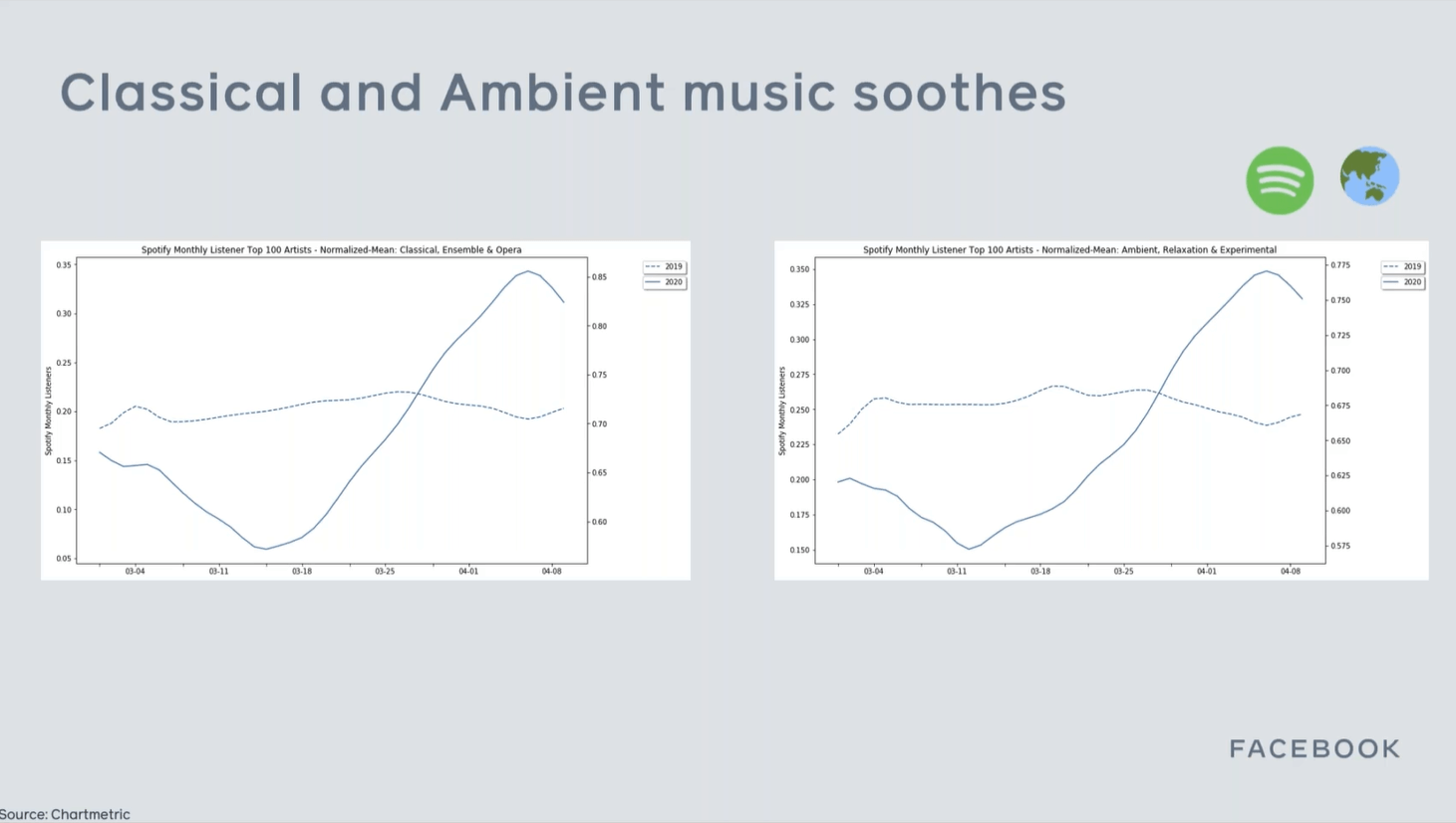
The internet has played a crucial role in how billions of people have been coping with lockdown, and despite the fact that we are putting more strain on it than ever before 75% believe broadband companies are coping well. Across the UK, usage of all connected devices is up.
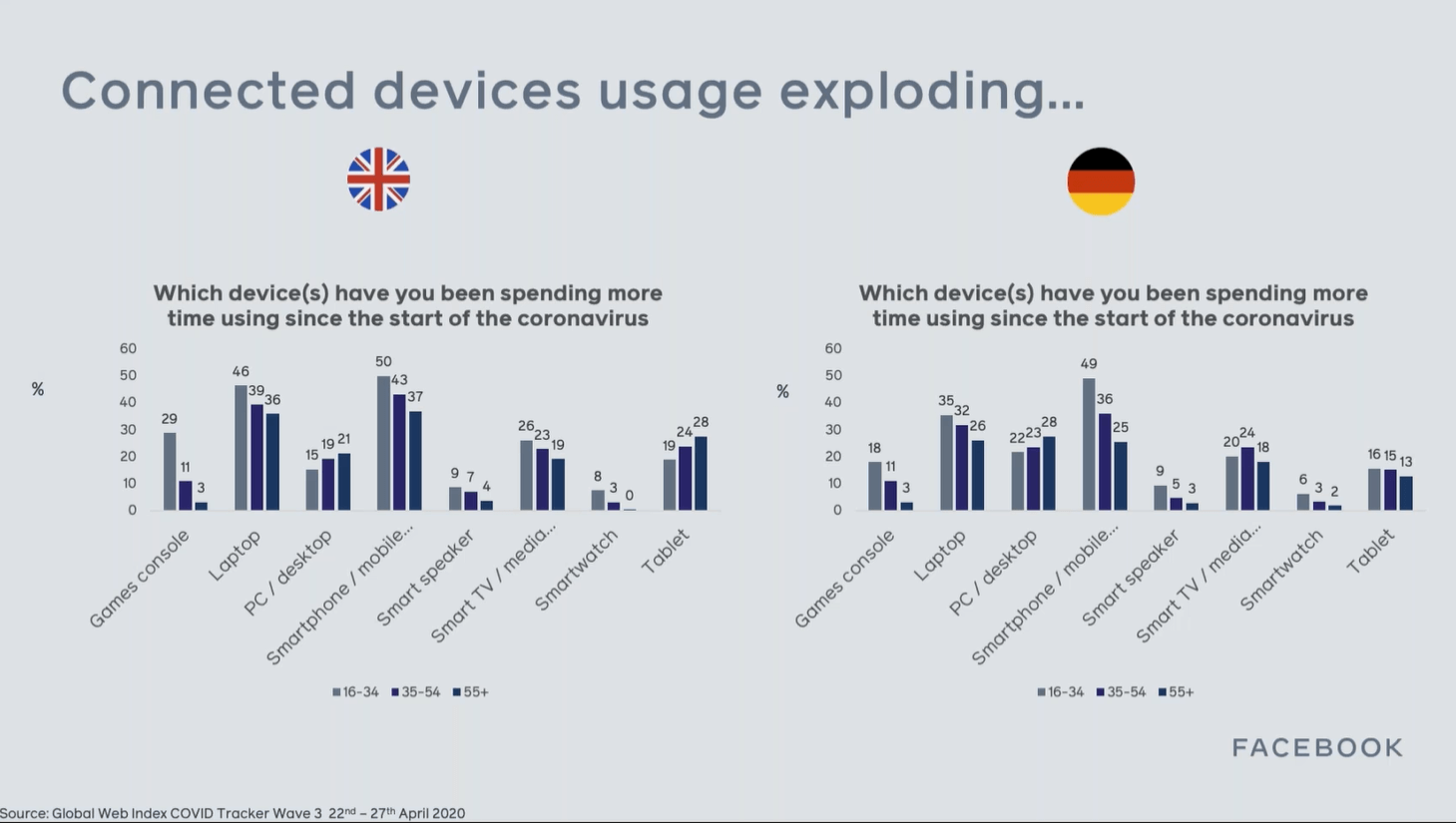
Demand for entertainment is booming and streaming services like Netflix and and new player Disney+ have been adding millions of new subscribers over this period.
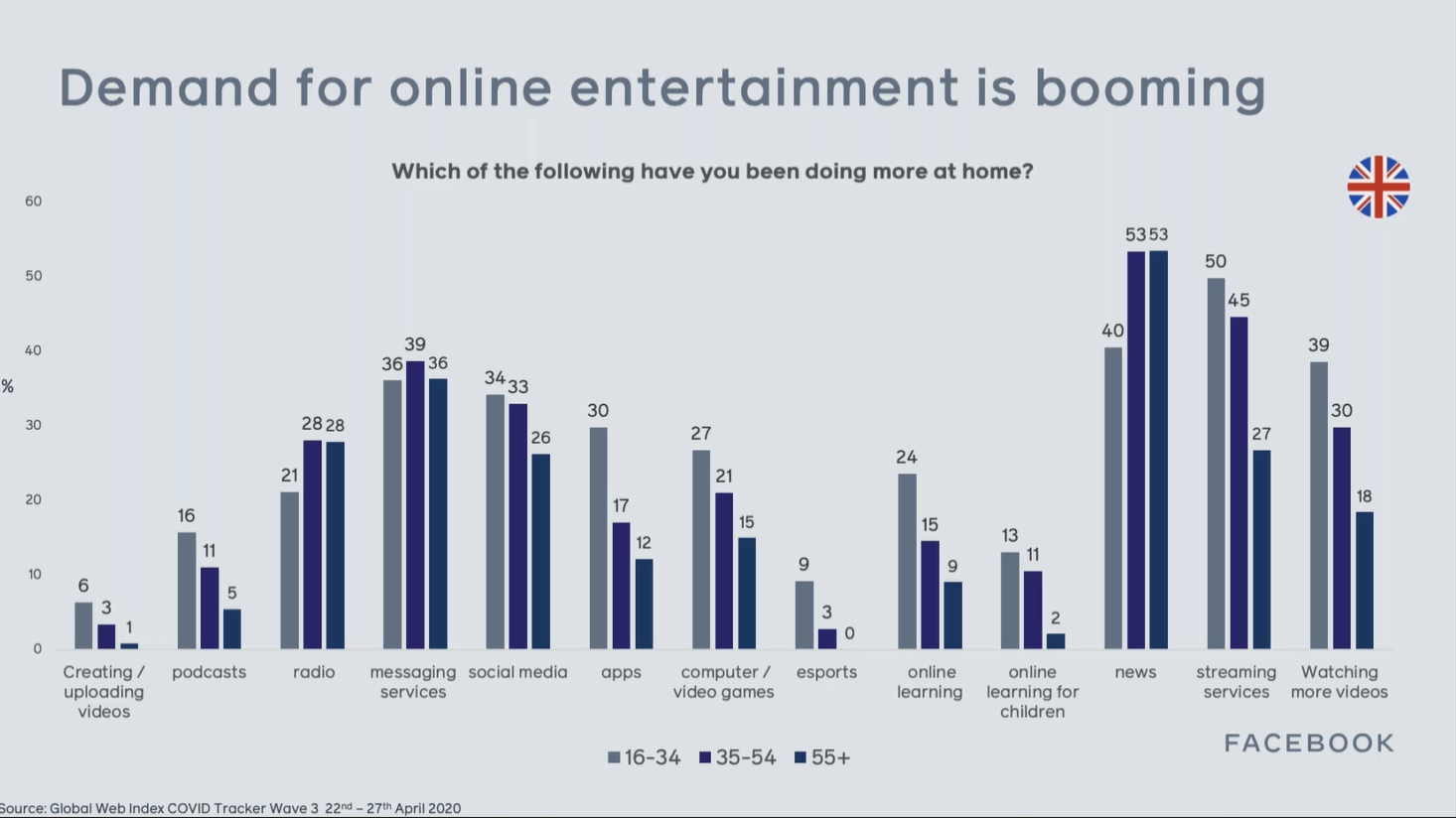
Shopping has also moved online, and this shift looks set to stick around well after lockdown ends. Despite shops reopening in Germany, attitudes towards physical retail remain negative and digital channels look set to permanently disrupt previously entrenched shopping behaviours.
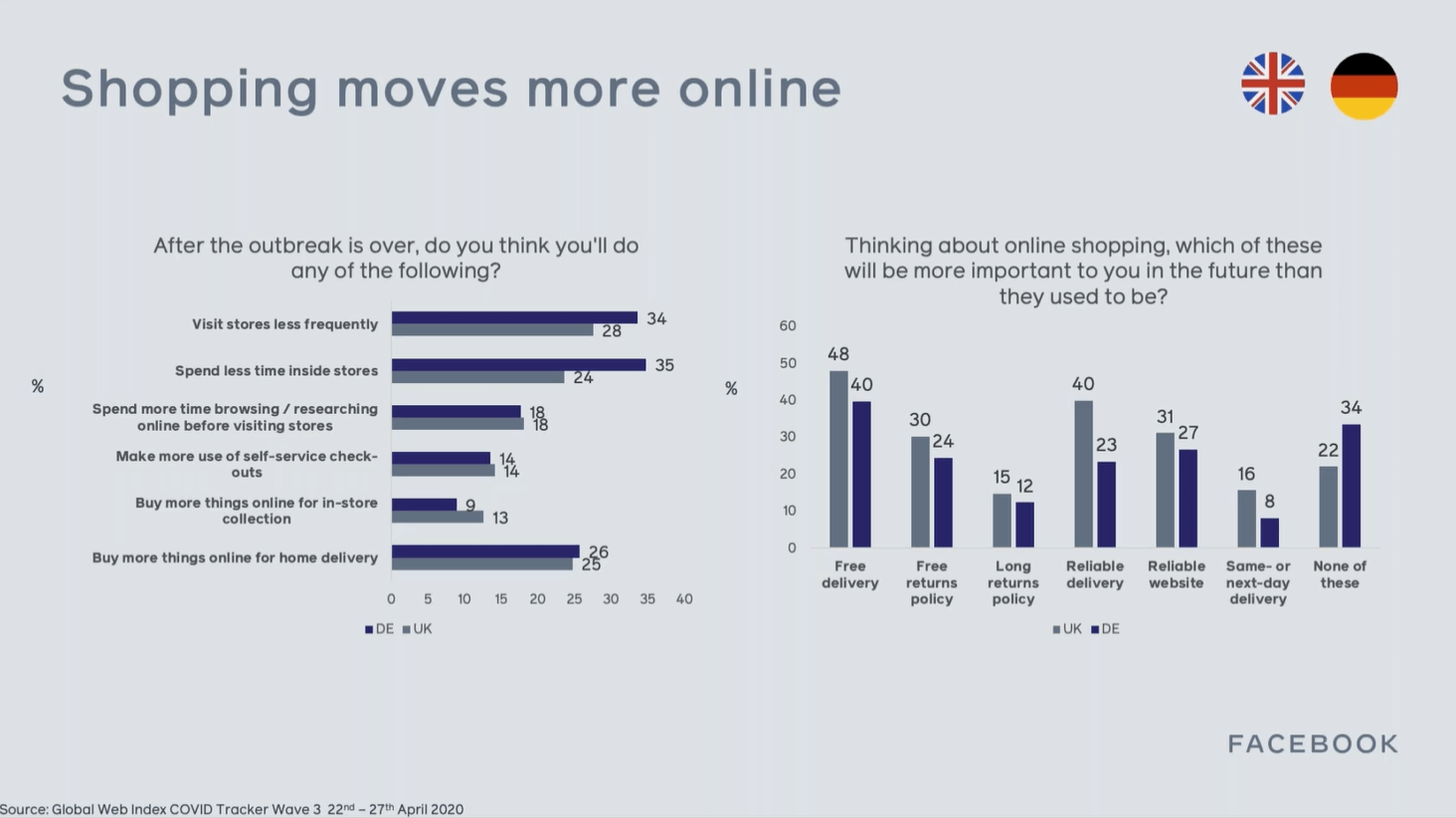
Digital has become key for social activities, culture, work, and entertainment. In fact it’s hard to think of an area of life that hasn’t seen increased digitisation during the pandemic.
Connectivity is now essential, and despite the negative sentiment towards 5G caused by pervasive conspiracy theories, lessons from China (where 5G has been used for advanced telemedical purposes such as remote CT scanning) suggest that the pandemic might actually catalyse 5G’s uptake throughout Europe.
As traditional purchase cycles collapse and the internet becomes a one-stop-shop for discovery, consideration and purchase, brands should be thinking about what their social commerce strategy looks like and how they can leverage the power of 5G.
3) Constraints create opportunity
“I believe that humanity will beat this pandemic, but only when most of the population is vaccinated. Until then, life will not return to normal. Even if governments lift shelter-in-place orders and businesses reopen their doors, humans have a natural aversion to exposing themselves to disease… the world economy will be depressed because demand will stay low and people will spend more conservatively.”
Bill Gates, in the Economist, 23rd April 2020
For a while now the message that we are in this for the long-haul has been communicated by those in the know. Despite the natural optimism of the general populace, 76% of Brits now believe that COVID-19 will have a long-lasting negative impact on society and 45% of us now believe that we won’t return to normal this year.
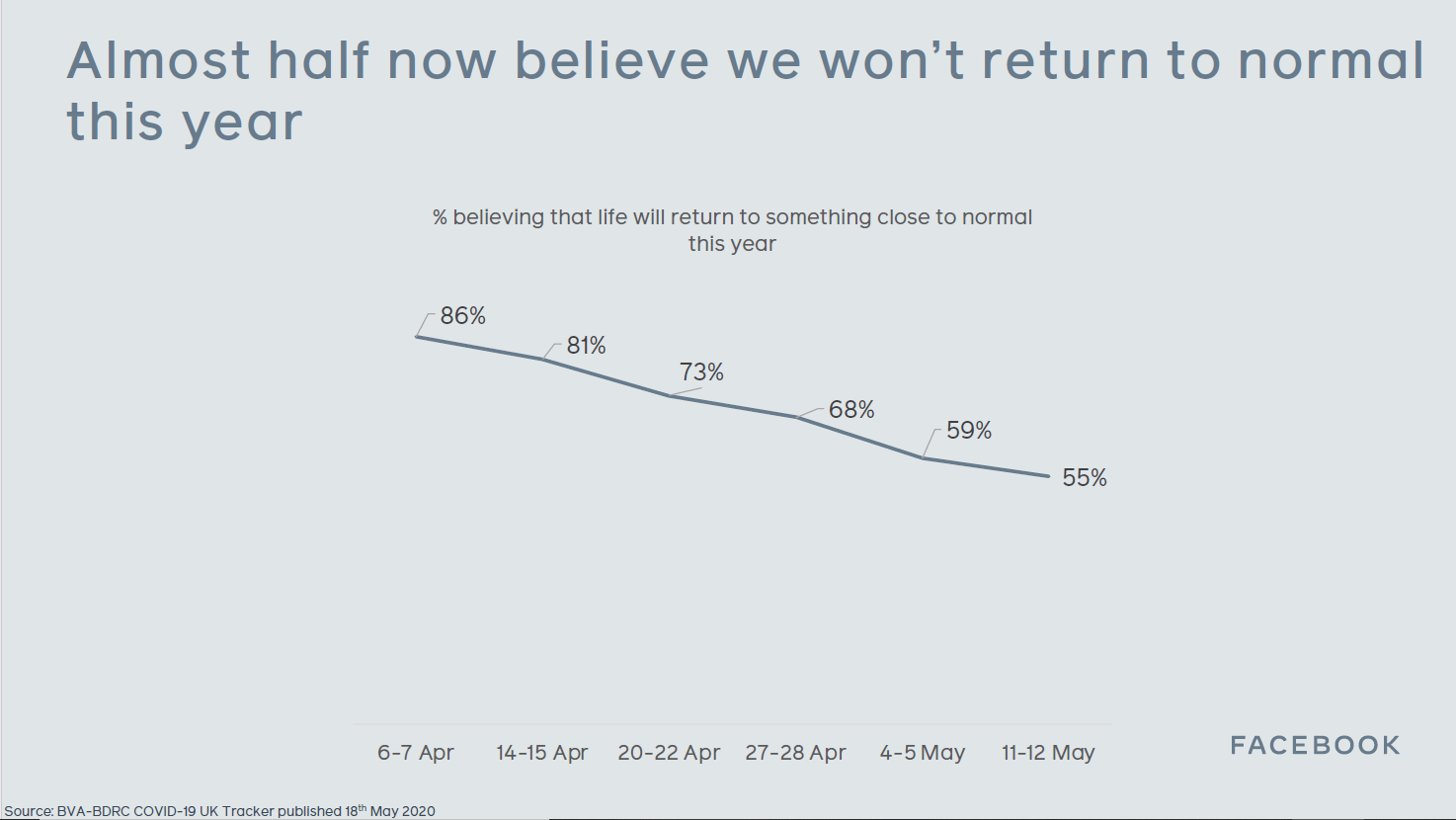
Across Europe as many countries are unlocked, the percentage of people avoiding crowded places remains high. The lesson to learn here is that just because people are allowed to do something, it doesn’t mean that they’ll flood back to it. People are naturally afraid of disease so there will be a considerable lag-time between regulatory and behavioural shifts, especially amongst vulnerable groups. Despite garden centres and DIY shops being open in the UK, sales are down 70% YoY.
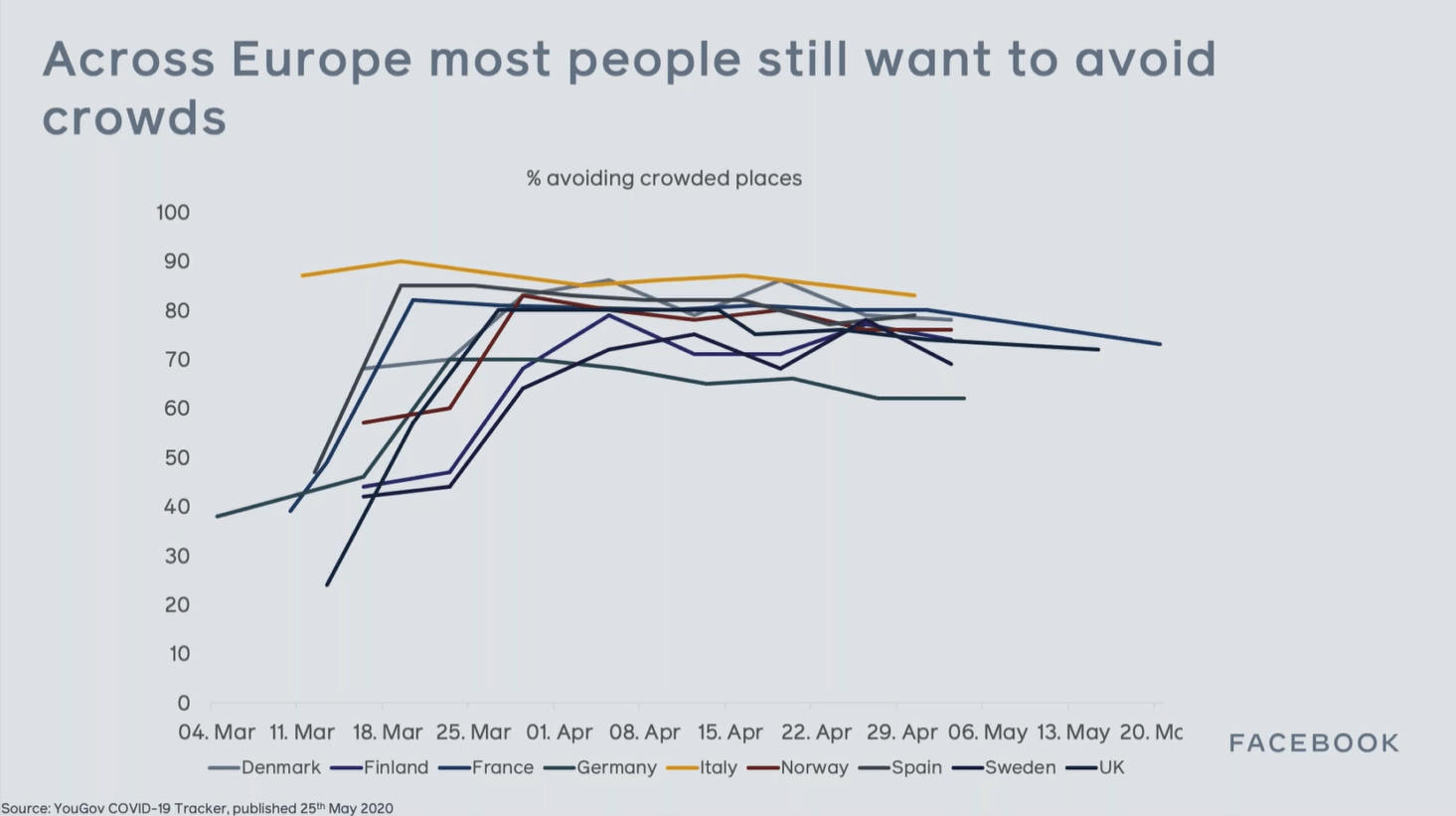
Waiting for it all to blow over is no longer a viable option for brands, who will now need to think about optimising their offerings for the new era. Diageo’s Bar Academy is a good example of this; the training scheme has now been taken fully online and this lasting pivot has increased their engagement with the scheme. Forced digital transformation can be a blessing as well as a curse.
New businesses are already being created to cater to new realities. For example, drive-in cinema companies are cropping up to cater for social distancing film lovers.
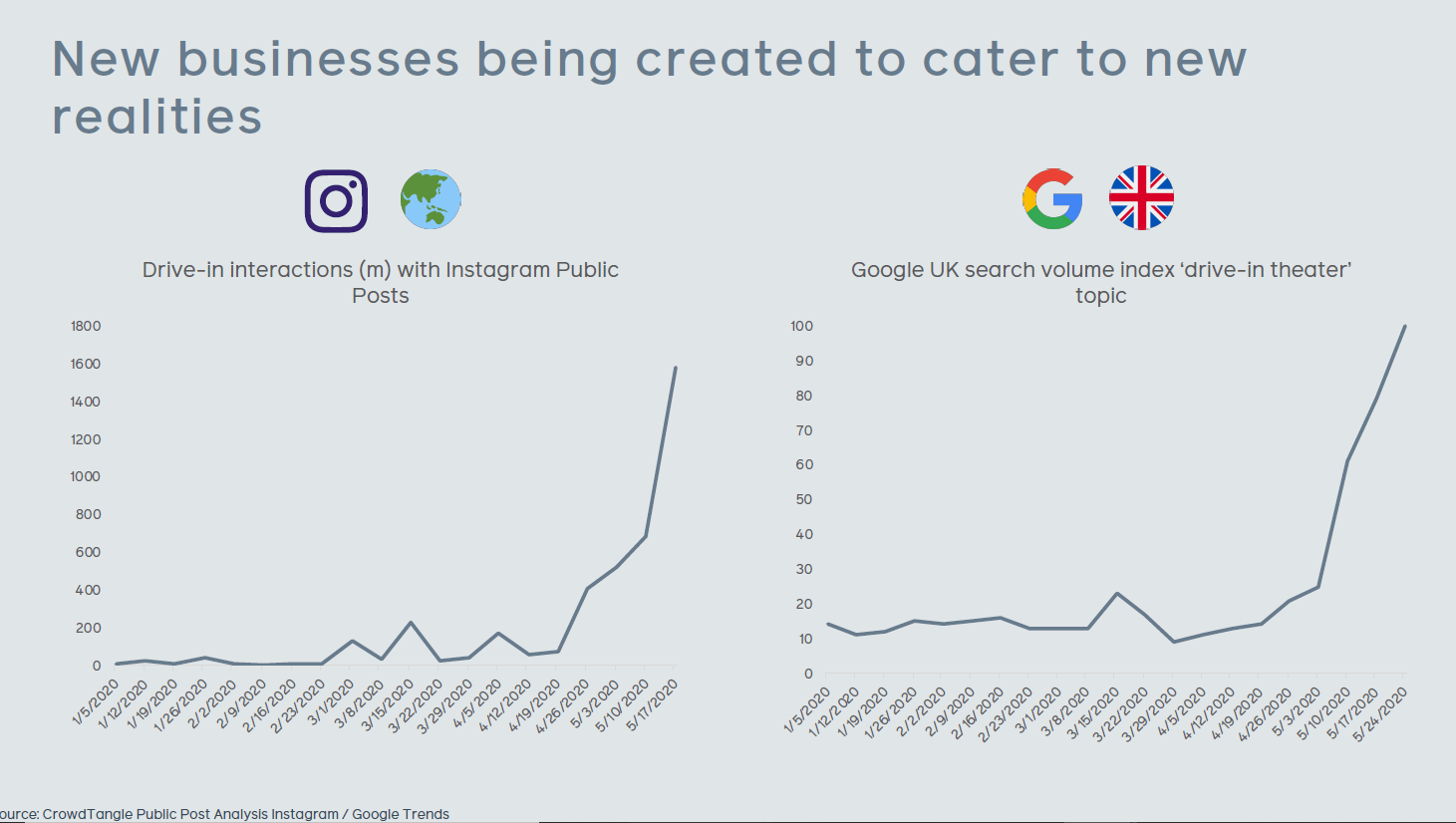
Facebook’s US Small Business Report has shown that 31% of SMBs have shut down entirely in the last 3 months and 36% of operational SMBs are now conducting all their sales online. Facebook shopping has been rolled out to support these businesses.
Brands now need to view the short term as long term and start planning for the changes you’ll want to keep post-crisis. Seeing constraints as an opportunity to re-imagine the business will be key for brands who want to thrive.
Thanks to the Facebook EMEA team for another informative session. We will be back in two weeks time with our next write up.
For more COVID-19 insights, read our summary of last week’s COVID LIVE, or download our whitepaper on The Effects of COVID-19 on Search Behaviour


